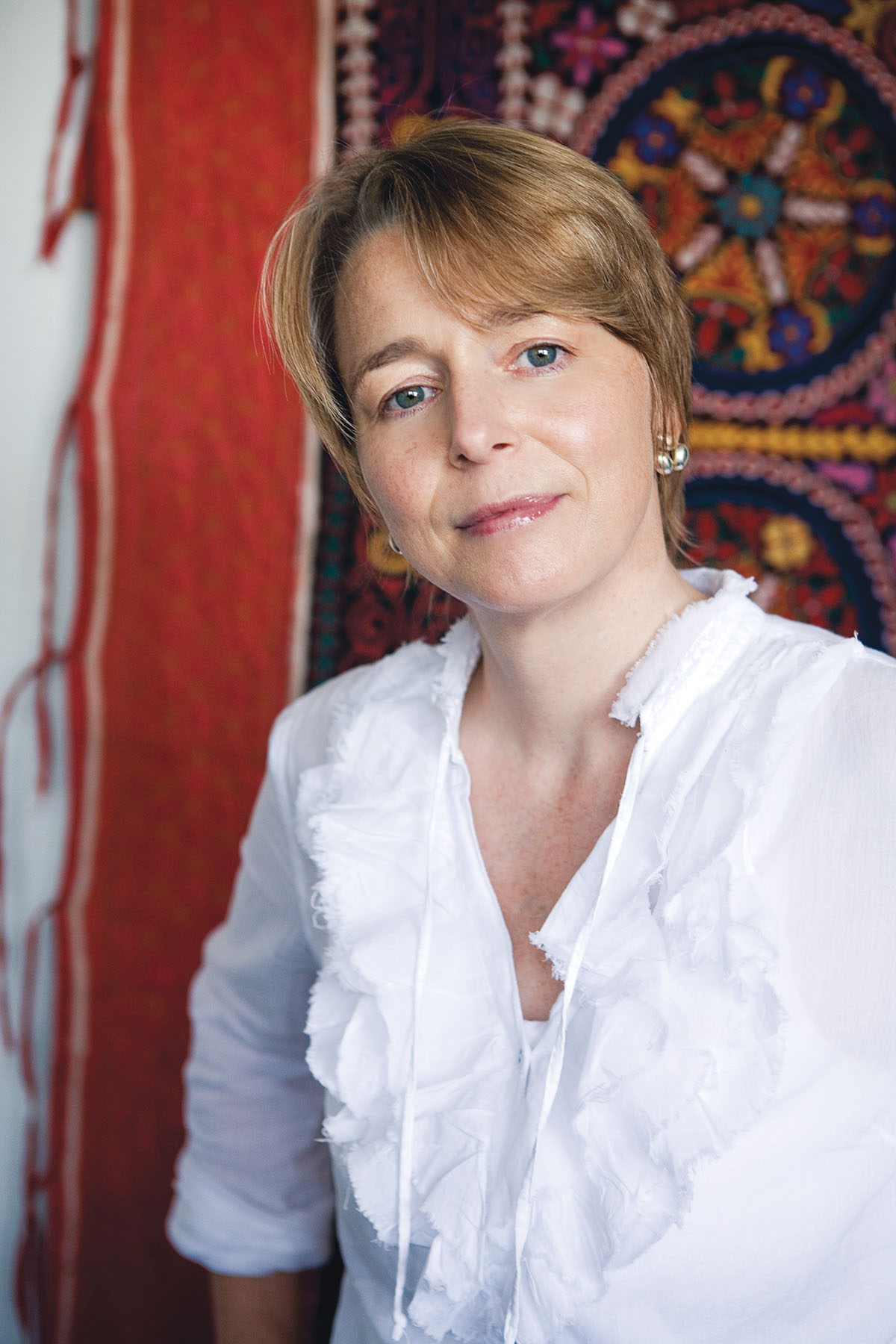Top of Mind: Ophelia Dahl

PHOTO BY SADIE DAYTON
When Ophelia Dahl is sitting in front of you, you want to hear her talk about so many things, from life as the daughter of a famed and beloved writer to the beautiful Kazakh tapestries in her Commonwealth Avenue offices, and, especially, her work as a cofounder of Partners in Health. The longtime healthcare and antipoverty nonprofit has become synonymous with Haiti, especially since January’s earthquake, and also serves those in need right here at home, in a city with the nation’s third-largest community of Haitian immigrants.
WHEN I WAS A TEENAGER, I still didn’t really know what I wanted to do with my life. I knew I wanted to do volunteer work, but I had no concept of where that would be.
…
When I first saw Haiti, I was 18 years old and I was rightly knocked for six, as they say in England: I was blown away by everything. It was a real assault on your senses and the way you think the world works, even if you have a good imagination.
…
I met [future PIH cofounder] Paul Farmer out in the countryside – he was trying to get a job before he went to medical school. As an anthropologist, he had a good idea of what to expect and already knew a bit about Haitian culture and history.
…
All I knew was from Graham Greene novels and tourist books.
…
We address barriers to healthcare. When a patient says, “My children are sleeping in the rain; I have no roof on my house,” you have to understand that housing is part of healthcare.
…
PACT (Prevention and Access to Care and Treatment) started when we asked why Bostonians who lived within spitting distance of an incredible hospital system were dying of HIV. Why were people falling through the cracks? Language barriers, domestic violence, all kinds of things.
…
It’s suddenly not all first-generation immigrants who are poor in Boston. Certainly the financial crisis of the past couple of years has exacerbated the issue. People who were living on the edge are now falling off the edge.
…
I can leave my house in Cambridge early in the morning and be in Haiti by noon. You get on a plane in Miami and you’re there in an hour and a half – it’s like going from Boston to DC. Relief workers and supplies went in planes donated by Bostonians – who knew there were so many privately owned planes around?
…
What everybody saw and went through in the days after the earthquake was truly unimaginable. Even hardened medical professionals are still reeling from things you hope never to see in your life.
…
It’s hard to be anywhere now and not think about an exit. How would you get out of any building?
…
We get young people today who want careers in global health and are absolutely ignited in their belief that they can build movements and change the world.
…
The young people of 20 years ago were more focused on making money quickly.
…
Things in Haiti are still really bad. Hundreds of thousands of people still aren’t housed. The rainy season started early, so it’s mud up to here; there’ll be mudslides and other terrible things. After a disaster people think, “Okay, now it’s finished and we can rebuild.” But the work is only just beginning.
…
Even five bucks is helpful. Five bucks begins the partnership.
…
Our core philosophy involves the concept of accompaniment. When we’re in Haiti, we’re accompanied by Haitians. And we accompany the Haitians. And our supporters accompany us.
…
It’s like anything in life: You don’t expect to go through it alone.
Throughout August, Boston magazine will donate 20 percent of the proceeds from all new or renewed subscriptions received online to Partners in Health. To subscribe, click here.